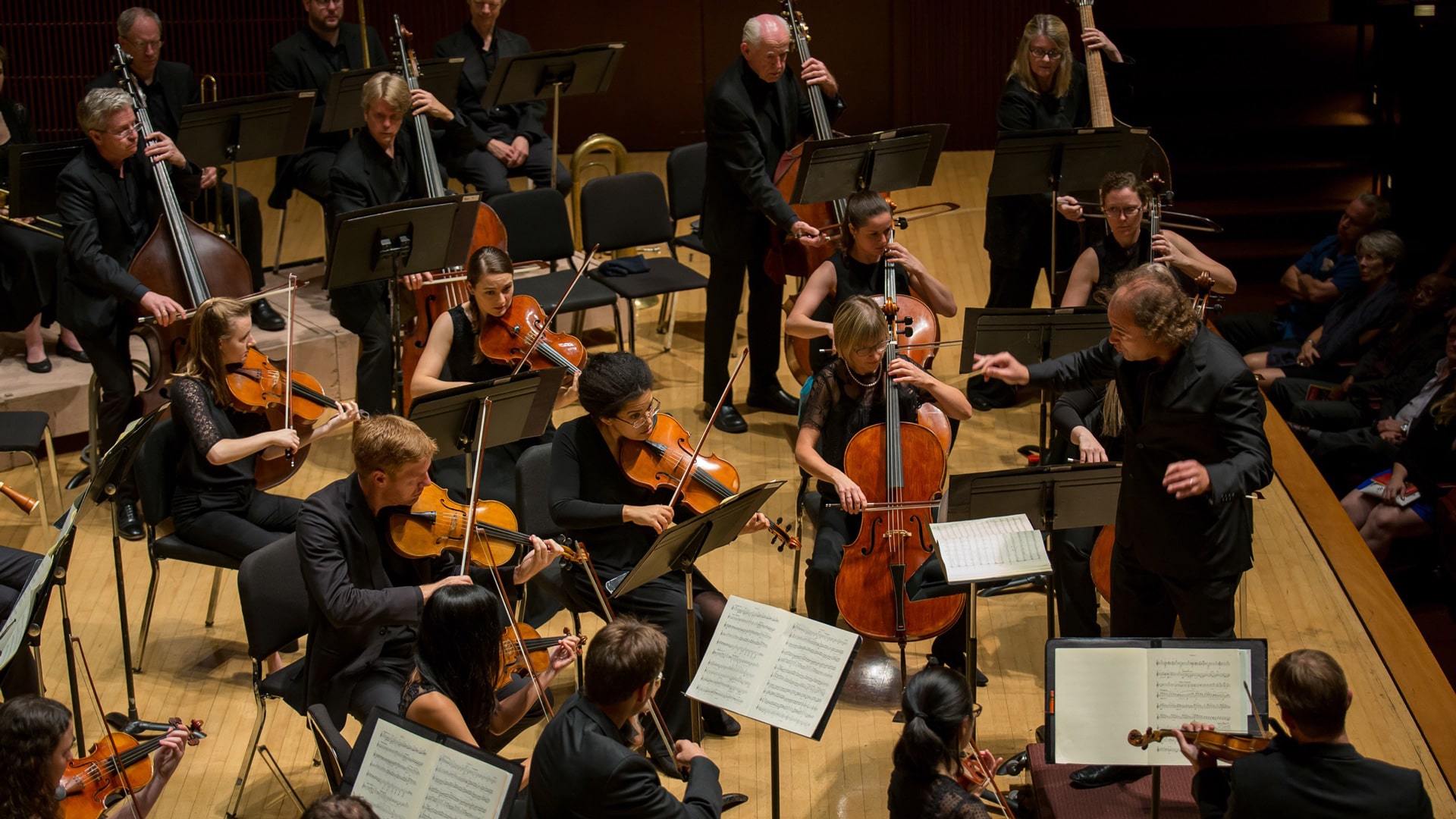Mercury to bring Mozart's final three symphonies to life at Bayou Theater
January 23, 2019 | UHCL Staff

In just 35 short years on Earth, Wolfgang Amadeus Mozart composed over 600 works,
including 41 symphonies, writing the last three within about six weeks at the end
of his life. On Feb. 7 at 7:30 at University of Houston-Clear Lake’s Bayou Theater,
Mercury will perform its own special interpretation of these three masterpieces. Antoine
Plante, the orchestra’s artistic director, says these three works are part of the
‘golden age’ of Mozart and bringing these symphonies together in a trio shows how
one person could compose music that impacts the world profoundly, even more than 200
years after his death.
“Sometimes, someone comes along who’s exceptional and has been touched by God,” Plante
said. “Two centuries later, we are still thinking about his work. His music touches
the human spirit and makes the sounds that make you appreciate the beauty of life.”
Symphony No. 39, Plante said, starts slowly with a French overture, borrowed from
the Baroque era, where they often were the opening movement of an opera. “This was
the time when the king would have walked in slowly,” he said. “That is the inspiration
for the introduction of this piece. There are plays on instrumentation. Mozart did
not use oboes, so the sound is sweeter.”
Symphony No. 40, one of Mozart’s only symphonies written in a minor key, has a very
well-known melody. “The audience will feel familiar with this one,” Plante said.
Mozart did not give Symphony No. 41 the nickname “Jupiter,” although it’s often called
by that name. The first three chords of the full orchestra are associated with the
ancient Roman god of sky and thunder. “Mozart brings back the oboe and the trumpets
in this one, and the first movement feels like a military fanfare,” he said. “The
closing shows the influence of Johann Sebastian Bach on Mozart’s work. Mozart rarely
does this, because it is as things go in our culture. What’s really popular in one
generation, the next one will fight. They don’t want to listen to their parents’ music,
but here, Mozart went back to it as something good and still worth remembering.”
As always, Mercury puts its own unique impression on each of its performances. “Our
twist is always about quality,” he said. “In this case, we have the best musicians
from around the country using period instruments. We are bringing that experience
to Clear Lake.”
Also, Plante said, Mercury offers the audience accessibility in the way that he speaks
directly to them, breaking the wall between the orchestra and them and creating ambience.
“We stand up, we play dynamically. We believe that a dynamic, emotional commitment
to the music is at the core of all our performances. This is what makes it a meaningful
and profound experience.”
About the Author:
Recent entries by
October 18 2022
Better technology transforms campus safety: Police Chief demonstrates SafeZone to students
October 14 2022
Student's skill with drones takes chicken turtle research to new heights
October 11 2022
Planting event to help UHCL restore native plants to campus, support environmental sustainability







